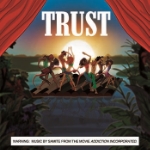Historically, Musicians for World Harmony (MWH) was able to offer our MUSIC Heals Program to only the places that we could visit in person. While in Lira this February, Professor Karen Wacks (Berklee College of Music) and I forged relationships with the counselors at ARDI (Acoke Rural Development Initiative). This has made it possible for us to pilot, via the internet, a continuation of the MUSIC Heals Program that we conducted while there.
Since February, the counselors, a growing number of war survivors and community members, Karen and I have met via Skype and Google Hangout. During these weekly meetings we share music and tools to use in the healing process – these range from musical exercises and sharing of songs to encouragement and guidance for the counselors who implement day-to-day programs.
The counselors and the ARDI community have already shared their music and dance with young people here in the U.S.
Our weekly meetings have encouraged spontaneous interactions with the community – the results of this are far-reaching. The stigma against survivors has decreased. The larger community is more willing to get directly involved with the survivors. For example, an elder from a neighboring community recently came to share her music and dancing with the people at the ARDI center. According to the center’s Director, Fred Obala, activity there has increased since our visit in February; people feel more comfortable coming to join them there because of the activities based around music.
ARDI organizes community outreach programs four times a month with four counselors and approximately 15 youths. These programs focus on anti-bullying education with respect to former child soldiers and offer counseling to those in need. The counselors have found that the community is excited about what the center has to offer, but it is difficult for the group to travel as often as they would like as they have only bicycles and need to hire a bodaboda (motor scooter) in order to carry their instruments.
One of the difficulties that we (MWH) face in implementation is the lack of technology at ARCI– the center has one lap top and a modem that is inferior – it often breaks when we meet. Despite this, our weekly meetings are lively, engaging and purposeful. I am very happy with this development in our MUSIC Heals Program, I feel like the possibilities are endless.
*Mobile Unit of Song to Improve Communities




